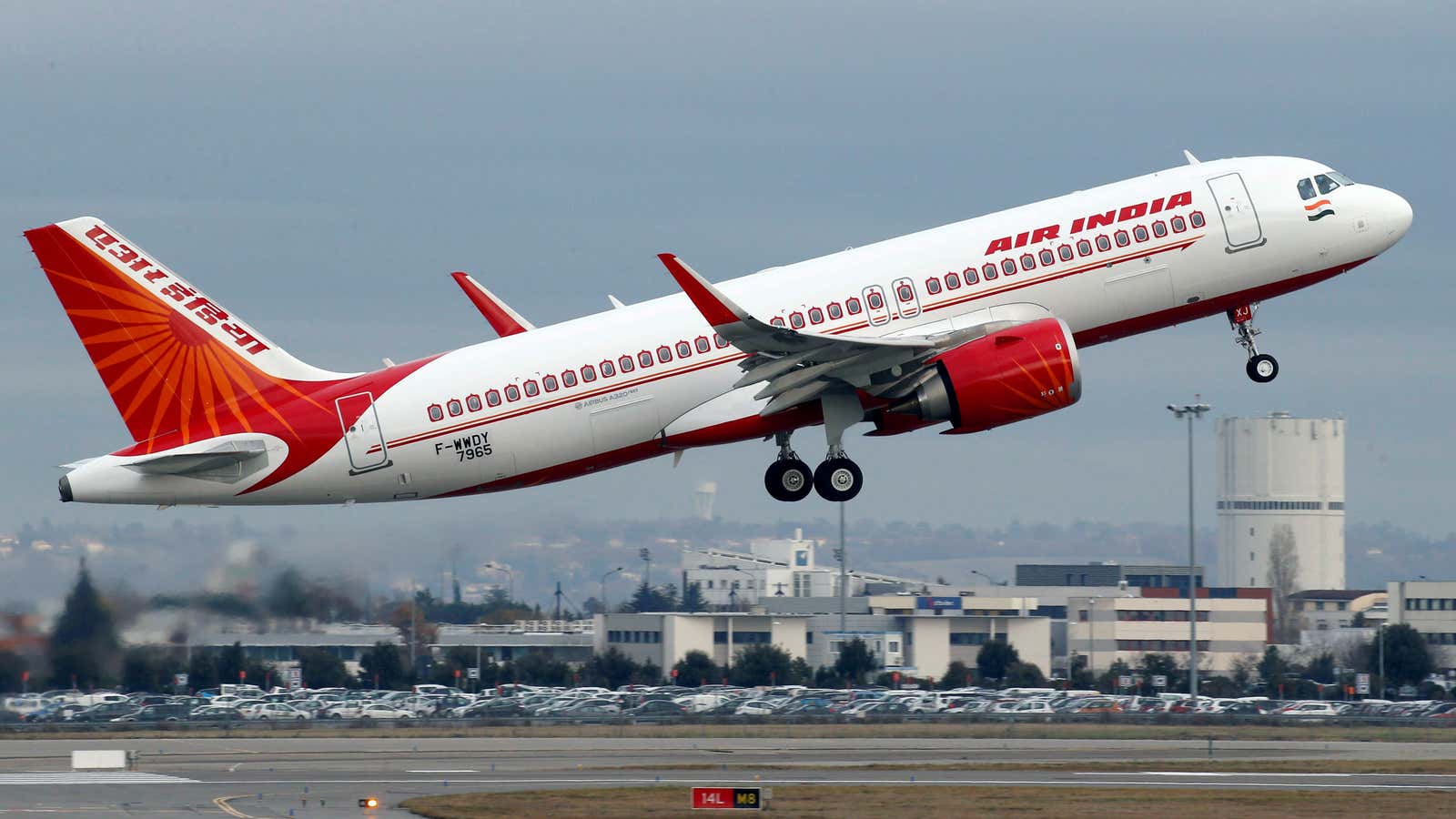India’s indebted national carrier is taking a flight back home.
The Narendra Modi government today (Oct. 8) announced that Tata Sons had won the bidding process for Air India. The salt-to-software conglomerate will take back ownership of the carrier nearly after seven decades.
Of the seven expressions of interest received, five were disqualified, officials said today. Tata Sons offered 18,000 crore rupees ($2.35 billion) for the airline, beating their closest rival, SpiceJet’s Ajay Singh, who bid Rs15,000 crore.
The transaction will now be completed by December this year, officials said. Existing employees can’t be laid off for a year after the takeover, the government official said.
Founded by Tata Sons in 1932, Air India was nationalised by late prime minister Jawaharlal Nehru’s government in 1953. With its return to the old fold, aviation analysts believe it will now completely transform, owing to the Tatas’ “deep pockets, “returning to its “past glory.”
“The Tatas are known for their quality service and Air India, which has lost on quality from customer to employee satisfaction over the years, will finally get rid of these problems,” Mark Martin, founder and CEO at aviation consulting firm Martin Consulting, told Quartz. “The Tatas are in for the long-term and they will be heavily investing in the carrier.”
Why was Air India sold?
In 2017, the Modi government announced its plans to sell the national carrier after it suffered recurring losses and particularly following a gigantic cash crunch. The airline hasn’t made a profit since its merger with Indian Airlines in 2007. For the financial year ended on March 31, 2017, it reported a net loss of around Rs10,000 crore.
Experts blame instability at the top as the main reason for its condition today.
“Bureaucrats were running the carrier without any prior experience of aviation,” said Jitender Bhargava, former executive director of Air India and author of The Descent of Air India.
The Tatas’ second innings
Following a few failed divestment attempts since 2018, the Indian government decided to sell a 100% stake in Air India. The reason the process did not take off earlier was the airline’s huge and mounting debt, which, as of Aug. 31, stood at Rs65,562 crore.
The new owners will now take over Rs15,000 crore of the outstanding. The remaining will go to Air India Assets Holding, a special purpose vehicle set up to implement the strategic disinvestment.
In terms of physical assets, the Tatas will now get control of 4,400 domestic and 1,800 international landing and parking slots at airports across India, besides around 900 abroad.
The Tatas have two other airlines under their umbrella: Vistara, their joint venture with Singapore Airlines, and AirAsia India.
With Air India in their kitty, the group will become “formidable” in Indian aviation, industry experts say.
“There is room for two or three airlines. I am glad Air India is being divested. Having an airline that is not run on economics is not good for the industry,” Ronojoy Dutta, CEO of InterGlobe Aviation, the parent firm of domestic carrier IndiGo told Moneycontrol in an interview.
